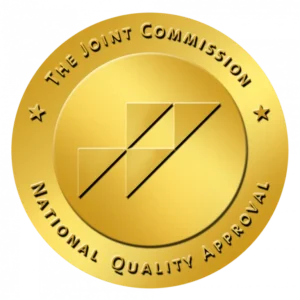Are you noticing changes in your loved one’s behavior that does not match their typical mannerisms? Does their mood seem off, or are they doing things they normally would not? While it might be challenging to pinpoint what is happening, it is worth paying attention to these concerns. Listening to your instincts when you see the signs of opiate addiction could save your loved one’s life. Noticing addictive behavior and getting your loved one into the substance abuse treatment program they need at TruHealing Reidsville – Reidsville can make all the difference.
Understanding the Common Signs of Opiate Addiction
Someone who is displaying the signs of opiate addiction can still work at their job and maintain a stable appearance. They might continue holding down their responsibilities, but, over time, their addiction could lead to severe problems.
Here are examples of common signs of opiate addiction:
- Borrowing medications from others
- Insomnia or changes in their sleep patterns
- Poor or reckless decision-making that could lead to harm
- Seeing several doctors so they can build up a supply of medications
- Unusual mood swings, ranging from feeling elated to hostile
- Using opiates even when they are not feeling pain
Understanding Your Reaction to These Signs
When you see a loved one displaying the signs of opiate addiction, you might also start acting differently. We love those who are close to us and, when we see them acting unusually, it is a natural reaction to protect them. As a result of that, you might notice yourself reacting in some of these ways:
- Feeling the urge to call the police each time your loved one obtains opiates illegally
- Feeling worried or anxious about your loved one dying as a result of their drug use
- Making excuses for or lying about the reasons for your loved one’s moods or behavior
- Refraining from spending time with your loved one to avoid confrontations and mood swings
How to Tell if Your Loved One is Abusing Opiates
In addition to watching for the signs of opiate addiction, there are also ways you can tell if they are abusing these drugs. For example, your loved one might be taking medications longer than their doctor intended. You might also notice that they are using large dosages than what is prescribed. Typically, a pain-killer prescription is for a short timeframe. So, if you see your loved one using them for an extended period, that could be a red flag indicating they need rehab treatment.
Another way you can tell if your loved one is abusing opiates if they try curbing their use and are unsuccessful. Despite their desire to quit, some people struggle with this challenge more than others. There are factors, including environmental, genetic, and psychological, that put some users at a higher risk of abusing these drugs.
Social Signs of Opiate Addiction
There are several social signs of opiate addiction that you might be noticing with your loved one. For example, do you notice that they are withdrawing from social gatherings or time they used to spend with friends or family? Is your loved one using opiates as a way of coping with interpersonal or other social situations? You might also notice that they are having difficulty fulfilling their work or school obligations. Your loved one might also be suffering from a persistent psychological issue and, despite knowing opiates are making it worse, they continue using. These are all warning signs of opiate addiction.
Final Thoughts
If you notice the signs of opiate addiction in a loved one, that might leave you with several questions and concerns. No one should have to experience these worries without having the best support. Contact TruHealing Reidsville – Reidsville at [Direct] to receive answers to your questions and learn about how we can address your concerns.









